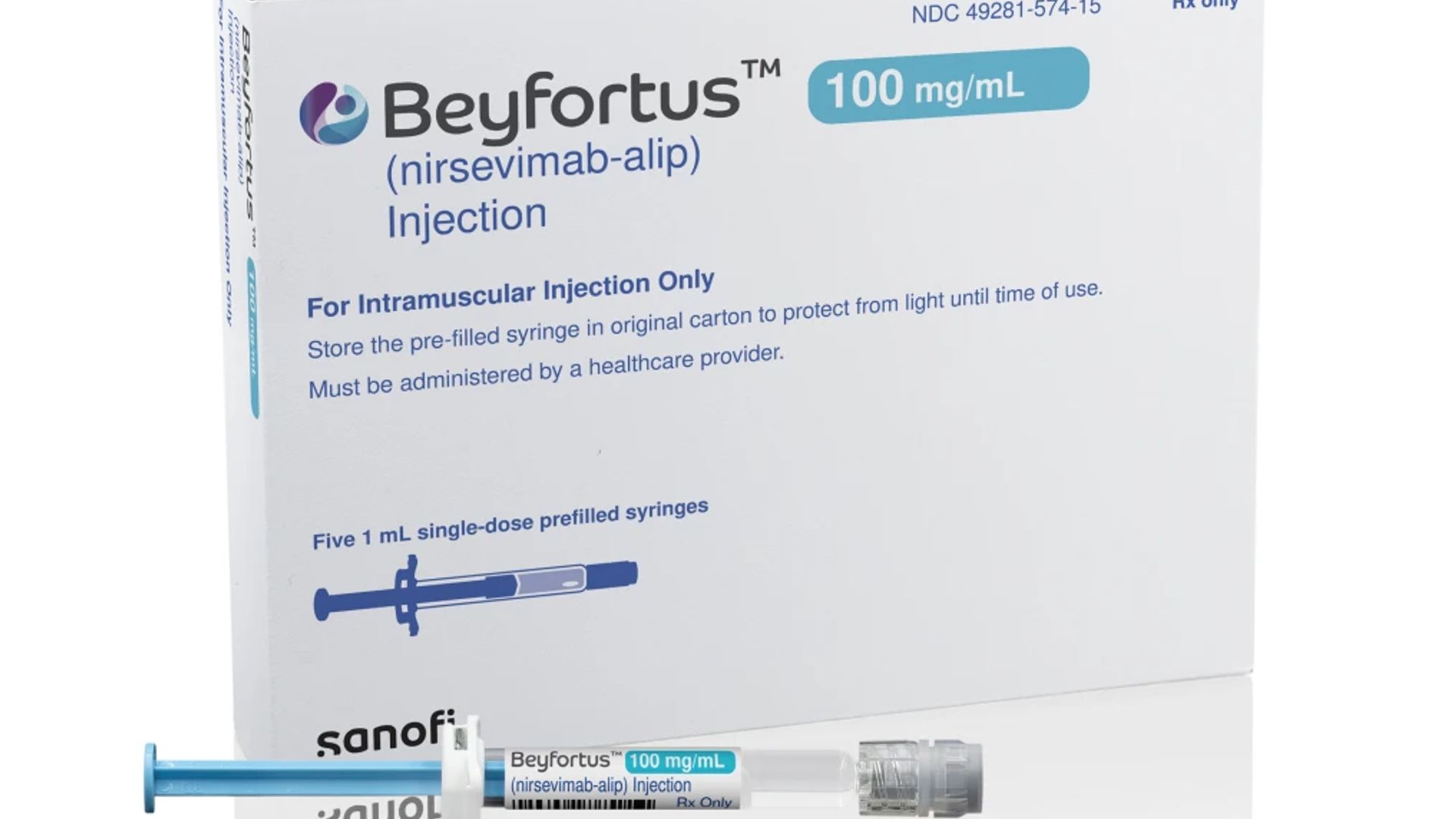
FDA gives approval to RSV prevention drug ahead of cold season
By Karah Rucker (Anchor), Ben Burke (Digital Producer)
Media Landscape
This story is a Media Miss by the right as only 10% of the coverage is from right leaning media. Learn moreBias Distribution
Left
Right
Untracked Bias
The Food and Drug Administration (FDA) announced it has approved the Respiratory Syncytial Virus (RSV) prevention drug Beyfortus. The injection was given the go-ahead for infants and children up to 2 years old who face increased risk of severe RSV.
“RSV can cause serious disease in infants and some children and results in a large number of emergency department and physician office visits each year,” John Farley, the director of the Office of Infectious Diseases in the FDA’s Center for Drug Evaluation and Research, said in a statement on Monday, July 17. “Today’s approval addresses the great need for products to help reduce the impact of RSV disease on children, families and the health care system.”
Beyfortus is made by AstraZeneca. The drug is a laboratory-made version of an antibody that helps the immune system fight off RSV.
FDA officials approved Beyfortus based on three studies showing the drug reduced the risk of RSV infection between 70% and 75% among infants and young children. With the FDA’s approval, babies will be able to receive a single injection to protect against their first season of RSV, which typically lasts about five months. Children up to the age of 2 will be able to get another dose to protect them during their second season of facing the virus.
Advisers to the Centers for Disease Control and Prevention (CDC) will meet in August to recommend exactly who should get the drug.
The FDA’s approval of the RSV prevention drug comes just over a month before the annual cold season gets underway. While RSV is a cold-like nuisance for most healthy people, it can be life-threatening in the very young and the elderly.
“While most infants and young children experience mild, cold-like symptoms, some infants, especially with their first infection, develop lower respiratory tract disease such as pneumonia and bronchiolitis (swelling of the small airway passages in the lungs), that often leads to an emergency department or physician office visit,” the FDA said. “Premature infants, and those with chronic lung disease of prematurity or significant congenital heart disease, are at highest risk for severe RSV disease. Approximately 1% to 3% of children under 12 months of age in the United States are hospitalized each year due to RSV, according to the American Academy of Pediatrics.”
THE FDA HAS APPROVED THE FIRST LONG-ACTING DRUG TO PROTECT INFANTS AND TODDLERS FROM THE RESPIRATORY VIRUS KNOWN AS RSV.
THE ANTIBODY PREVENTIVE THERAPY, CALLED BEYFORTUS, WAS APPROVED MONDAY FOR INJECTION FOR CHILDREN UP TO 2 YEARS OLD WHO ARE VULNERABLE TO SEVERE RSV.
IN A STATEMENT, JOHN FARLEY, THE DIRECTOR OF THE FDA’S OFFICE OF INFECTIOUS DISEASES, SAID, QUOTE:
“TODAY’S APPROVAL ADDRESSES THE GREAT NEED FOR PRODUCTS TO HELP REDUCE THE IMPACT OF RSV DISEASE ON CHILDREN, FAMILIES AND THE HEALTH CARE SYSTEM.”
THE DRUG IS SAID TO BECOME AVAILABLE IN THE UNITED STATES AHEAD OF THE UPCOMING COLD SEASON.
RSV IS THE LEADING CAUSE OF HOSPITALIZATION IN INFANTS.
LAST YEAR, HOSPITALS SAW A SURGE OF CHILDREN DIAGNOSED WITH THE VIRUS.
Media Landscape
This story is a Media Miss by the right as only 10% of the coverage is from right leaning media. Learn moreBias Distribution
Left
Right
Untracked Bias
Straight to your inbox.
By entering your email, you agree to the Terms & Conditions and acknowledge the Privacy Policy.
MOST POPULAR
-
 Getty Images
Getty Images
Democrats in Congress receive lowest approval rating in Quinnipiac poll history
Watch 2:5913 hrs ago -
 Getty Images
Getty Images
AG Bondi reviewing Epstein documents for release, could hold client list
Watch 1:4813 hrs ago -
 Getty Images
Getty Images
Speaker Johnson won’t support DOGE stimulus checks
Watch 2:0614 hrs ago -
 Reuters
Reuters
UN chief reveals his plan for peace in Haiti to Caribbean leaders
Watch 2:1516 hrs ago




